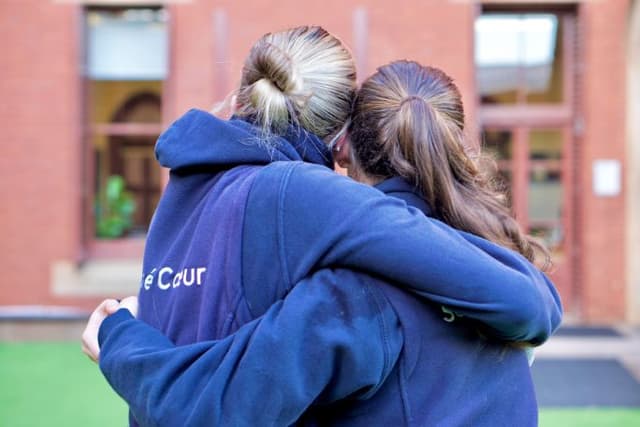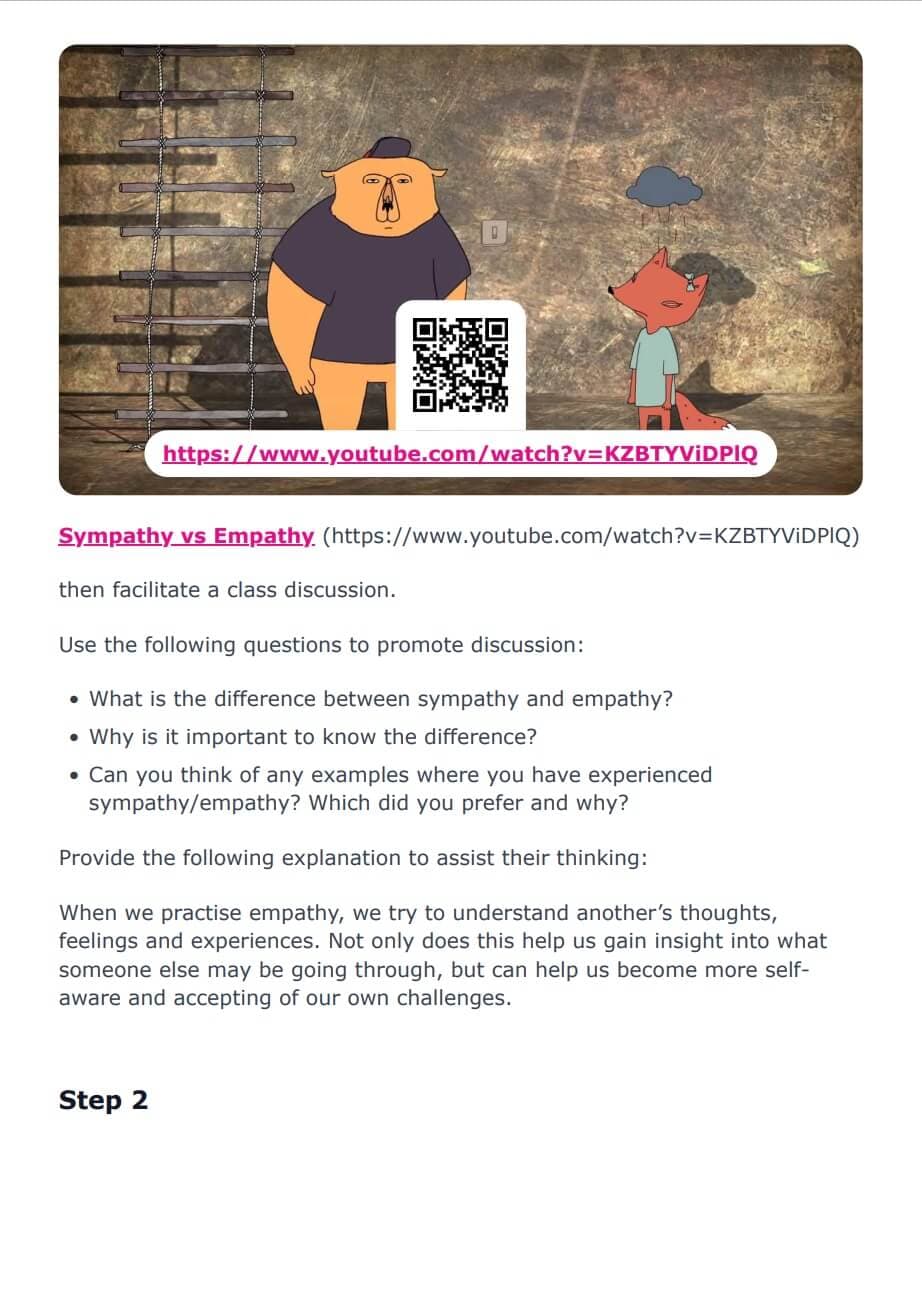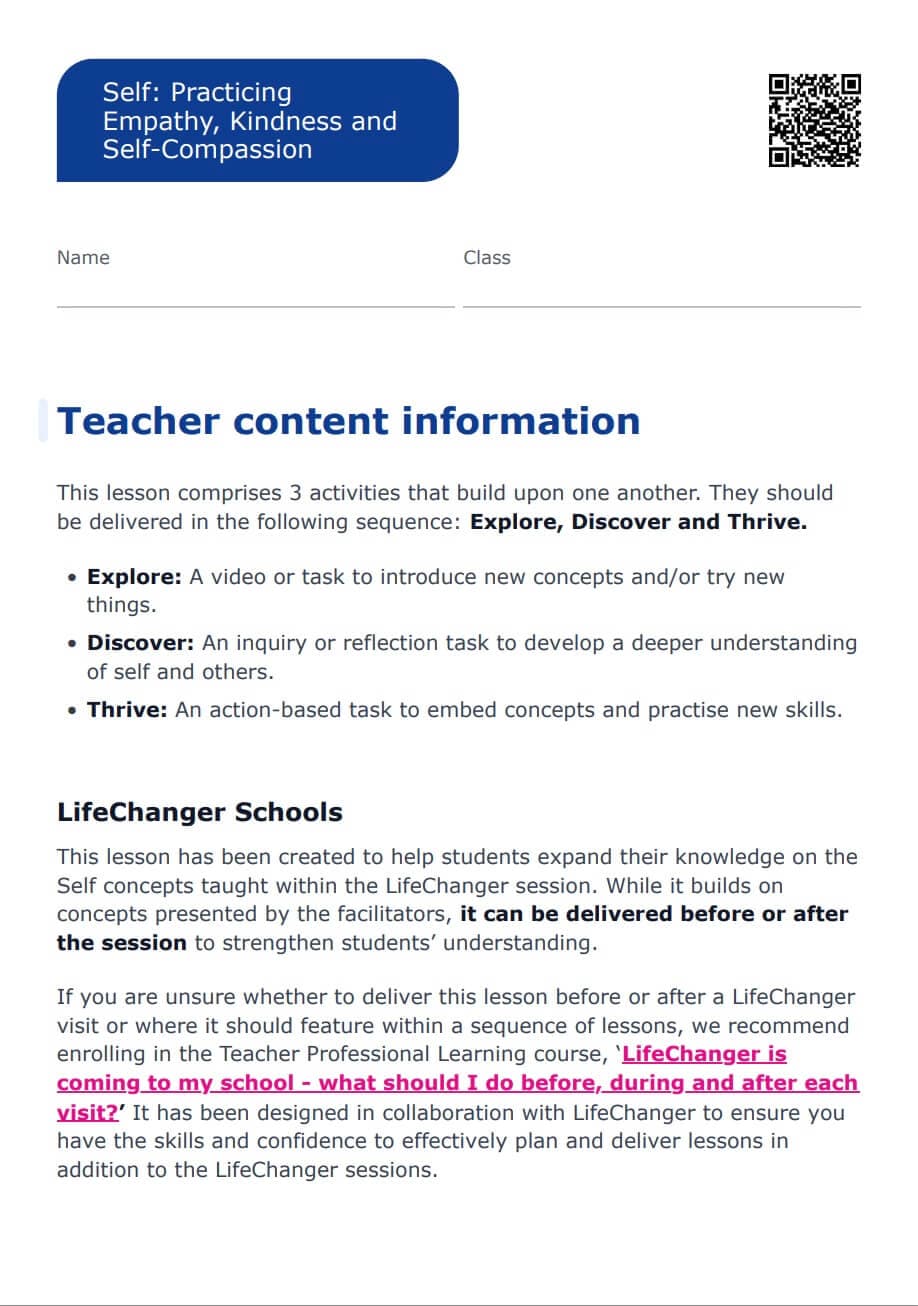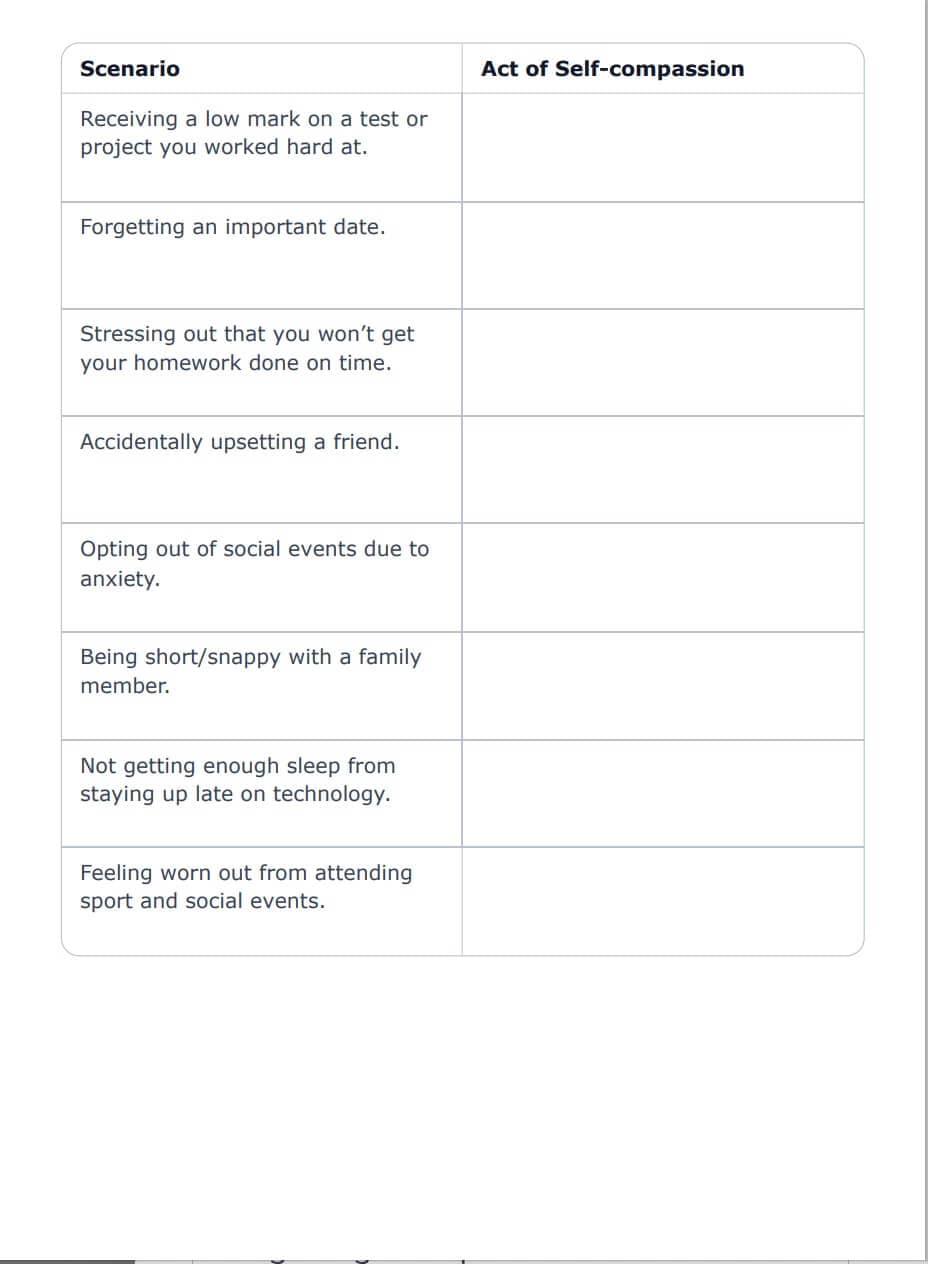
Self: Practicing Empathy, Kindness and Self-Compassion
Lesson4 of 7 in this unit
SecondaryYear 7 - 8Health and Physical EducationHealthSocialMental HealthSocial and Emotional Learning
Summary
Lesson Guides and Printables
Lesson Plan

Teacher Content Info

Self-Compassion Scenarios
